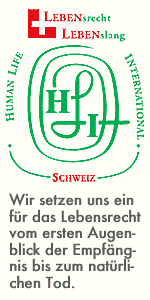Besuch bei den Flüchtlingen
Besuch von Papst Franziskus in Lesbos (Griechenland)
 Quelle
Quelle
KathTube: Papst Franziskus Ansprache auf Lesbos vor Flüchtlingen und Asylbewerbern im Flüchtlingslager von Mòria und Unterzeichnung der gemeinsamen Erklärung
Flüchtlingslager Moria, Lesbos, Samtsag, 16. April 2016
Ansprache von Seiner Seligkeit Hieronymus, Erzbischof von Athen und ganz Griechenland
It is with unique joy that we welcome today to Lesvos the Head of the Roman-Catholic Church, Pope Francis.
We consider his presence in the territory of the Church of Greece to be pivotal. Pivotal because together we bring forward before the whole world, Christian and beyond, the current tragedy of the refugee crisis.
I warmly thank His All-Holiness, and my beloved brother in Christ, Ecumenical Patriarch Bartholemew; who blesses us with his presence as the First of Orthodoxy, uniting through his prayer, so that the voice of the Churches can be more vocal and heard at the all the ends of the civilized world.
Today we unite our voices in condemning their uprooting, to decry any form of depreciation of the human person.
From this island, Lesvos, I hope to begin a worldwide movement of awareness in order for this current course to be changed by those who hold the fate of nations in their hands and bring back the peace and safety to every home, to every family, to every citizen.
Unfortunately it is not the first time we denounce the politics that have brought these people to this impasse. We will act however, until the aberration and depreciation of the human person has stopped.
We do not need to say many words. Only those who see the eyes of those small child that we met at the refugee camps will be able to immediately recognize, in its entirety, the “bankruptcy” of humanity and solidarity that Europe has shown these last few years to these, and not only these, people.
I take pride in the Greeks, who even though going through there own struggles, are helping the refugees make their own Calvary (Golgotha) a little less ponderous, their uphill road a little less rough.
The Church of Greece and myself, personally, mourn the so many souls lost in the Aegean. We have already done a great deal, and we will continue to do so, as much as our abilities allow for us to undertake in handling this refugee crisis. I would like to close this declaration by making one request, a single call, a single provocation: for the agencies of the United Nations to finally, using the great experience that they offer, address this tragic situation that we are living. I hope that we never see children washing up on the shores of the Aegean. I hope to soon see them there, untroubled, enjoying life.
Ansprache von seiner Heiligkeit Bartholomaios, Ökumenischer Patriarch von Konstantinopel
Dearest brothers and sisters,
Precious youth and children,
We have traveled here to look into your eyes, to hear your voices, and to hold your hands. We have traveled here to tell you that we care. We have traveled here because the world has not forgotten you.
With our brothers, Pope Francis and Archbishop Ieronymos, we are here today to express our solidarity and support for the Greek people, who have welcomed and cared for you. And we are here to remind you that – even when people turn away from us – nevertheless “God is our refuge and strength; God is our help in hardship. Therefore, we shall not be afraid” (Ps 45: 2-3).
We know that you have come from areas of war, hunger and suffering. We know that your hearts are full of anxiety about your families. We know that you are looking for a safer and brighter future.
We have wept as we watched the Mediterranean Sea becoming a burial ground for your loved ones. We have wept as we witnessed the sympathy and sensitivity of the people of Lesvos and other islands. But we also wept as we saw the hard-heartedness of our fellow brothers and sisters – your fellow brothers and sisters – close borders and turn away.
Those who are afraid of you have not looked at you in the eyes. Those who are afraid of you do not see your faces. Those who are afraid of you do not see your children.
They forget that dignity and freedom transcend fear and division. They forget that migration is not an issue for the Middle East and Northern Africa, for Europe and Greece. It is an issue for the world.
The world will be judged by the way it has treated you. And we will all be accountable for the way we respond to the crisis and conflict in the regions that you come from.
The Mediterranean Sea should not be a tomb. It is a place of life, a crossroad of cultures and civilizations, a place of exchange and dialogue. In order to rediscover its original vocation, the Mare Nostrum, and more specifically the Aegean Sea, where we gather today, must become a sea of peace. We pray that the conflicts in the Middle East, which lie at the root of the migrant crisis, will quickly cease and that peace will be restored. We pray for all the people of this region. We would particularly like to highlight the dramatic situation of Christians in the Middle East, as well as the other ethnic and religious minorities in the region, who need urgent action if we do not want to see them disappear.
We promise that we shall never forget you. We shall never stop speaking for you. And we assure you that we will do everything to open the eyes and hearts of the world.
Peace is not the end of History. Peace is the beginning of a History tied to the future. Europe should know that better than any other continent.
This beautiful island we stand right now is just a dot in the map.
To dominate the wind and the rough sea Jesus, according to Luke, called a halt to the blow outright when the ship He and His disciples embarked was in danger. Eventually calm succeeded the storm.
God bless you. God keep you. And God strengthen you
Ansprache von Papst Franziskus
Liebe Brüder und Schwestern,
ich wollte heute bei euch sein. Ich möchte euch sagen, dass ihr nicht alleine seid. In diesen Monaten und Wochen habt ihr auf eurer Suche nach einem besseren Leben viel Leid erfahren. Viele von euch haben sich gezwungen gesehen, aus Situationen des Konfliktes und der Gewalt zu fliehen, vor allem um eurer Kinder willen, den Kleinsten zuliebe. Ihr habt für eure Familien grosse Opfer auf euch genommen. Ihr kennt den Schmerz, alles zurückgelassen zu haben, was euch lieb war, und – was vielleicht am schwersten ist – nicht zu wissen, was die Zukunft bringen wird. Auch viele andere warten wie ihr in Lagern oder Städten in der Hoffnung, auf diesem Kontinent ein neues Leben aufzubauen.
Ich bin hierhergekommen mit meinen Brüdern, dem Patriarchen Batholomäus und dem Erzbischof Hieronymos, einfach um bei euch zu sein und eure Geschichten anzuhören. Wir sind gekommen, um die Aufmerksamkeit der Welt auf diese schwere humanitäre Krise zu lenken und ihre Lösung zu erflehen. Als Männer des Glaubens möchten wir unsere Stimmen vereinen und offen in eurem Namen sprechen. Wir hoffen, dass die Welt diese Situationen tragischer und wirklich verzweifelter Not beachtet und in einer Weise reagiert, die unserem gemeinsamen Menschsein würdig ist.
Gott hat die Menschheit so erschaffen, dass sie eine einzige Familie bilden sollte; wenn irgendeiner unserer Brüder und Schwestern leidet, sind wir alle betroffen. Wir alle wissen aus Erfahrung, wie leicht es einigen fällt, vom Leiden der anderen keine Notiz zu nehmen und sogar ihre Verwundbarkeit auszunutzen. Aber wir wissen auch, dass diese Krisen unser Bestes zutage fördern können. Das habt ihr bei euch selbst und im griechischen Volk gesehen, das inmitten seiner eigenen Schwierigkeiten grossherzig auf eure Not reagiert hat. Ihr habt es auch bei den vielen Menschen – besonders bei den Jugendlichen aus ganz Europa und der Welt – gesehen, die gekommen sind, um euch zu helfen. Ja, und so viel mehr muss noch getan werden! Doch lasst uns Gott danken, dass er uns in unserem Leiden niemals alleinlässt. Immer gibt es jemanden, der eine Hand reichen und uns helfen kann.
Dies ist die Nachricht, die ich euch heute hinterlassen möchte: Verliert die Hoffnung nicht! Das grösste Geschenk, das wir einander machen können, ist die Liebe: ein barmherziger Blick, eine Bereitschaft zuzuhören und zu verstehen, ein Wort der Ermutigung, ein Gebet. Mögt ihr dieses Geschenk miteinander teilen! Wir Christen erzählen gerne die Geschichte vom barmherzigen Samariter – einem Fremden, der einen Mann in Not sah und unverzüglich anhielt, um ihm zu helfen. Für uns ist das ein Gleichnis von Gottes Erbarmen, das allen gilt, denn Gott ist der Allbarmherzige. Es ist auch eine Aufforderung, dieselbe Barmherzigkeit denen zu erweisen, die in Not sind. Möchten doch alle unsere Brüder und Schwestern auf diesem Kontinent wie der barmherzige Samariter euch zu Hilfe kommen, in jenem Geist der Brüderlichkeit, der Solidarität und der Achtung gegenüber der Menschenwürde, der Europas lange Geschichte gekennzeichnet hat!
Liebe Brüder und Schwestern,
Gott segne euch alle, besonders eure Kinder, die alten Menschen und diejenigen, die an Leib und Geist leiden! Ich umarme euch alle von Herzen. Auf euch und auf alle, die euch begleiten, rufe ich die göttlichen Gaben der Kraft und des Friedens herab.
© Copyright – Libreria Editrice Vaticana


Schreibe einen Kommentar